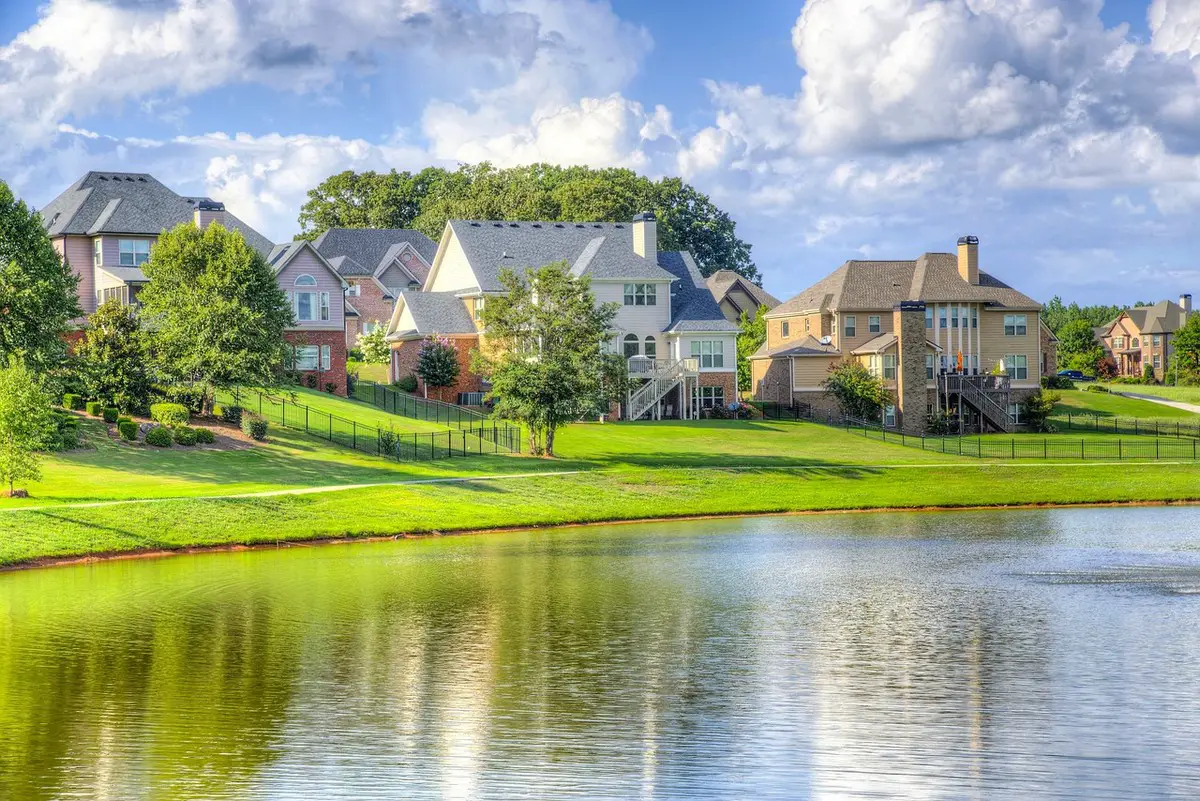How to plan a high-performing real estate website guide, Property potential buyers marketing
How to Plan a High-Performing Real Estate Website
19 April 2024
96% of potential home buyers looked for a home online, and for 47% of them, it is the first step in the entire home search process.
Regardless of their niche, real estate professionals need websites to reach a significant number of prospective clients, stay in touch with their former clients, and stand out in a competitive market.
In this article, you’ll find an overview of essential website features and learn about real estate website development needs, costs, and timeline.
Why Should You Invest in a Real Estate Website?
Investing in a real estate website lets people in different fields of the sector reach potential buyers, grow their brands, increase their revenue, and provide a smoother experience for clients. Here are some benefits of having a real estate website.
Lead Generation
A successful site can help potential clients find you, instead of you paying for marketing to reach them. The leads you’d get for appearing in relevant search engine rankings are also more likely to convert — people who look for your website already have an interest in your services.
Becoming Easy to Find
Your website doesn’t have business hours. It’s active 24/7, providing useful information about your business and property listings to website visitors whenever they need it. By the time a client contacts you, they will already have an idea of the properties you manage, build, or sell.
Building a Brand
Having a website adds another layer of professionalism to your real estate business — it shows that you put in effort to be available to clients. It also lets you be open to reviews and control how clients and contractors see you.
Showcasing Projects
Having a page that lets you showcase various properties that you manage, own or sell, helps you stand out in the real estate market. This can be used in different ways depending on the niche.
Market Research
Insights from analytics reports help you understand which pages, properties, and keywords attract traffic. Not only that, but over time, you will gain a better understanding of the changes to your approach that generate more leads, and what makes these leads convert.
Not all professionals in the real estate sector benefit equally from all of these points, however, each niche will gain some kind of advantage. Here are some examples to consider when building your website:
- Real estate agents – With a website, a real estate agent can generate more qualified leads. Being able to convert more people will significantly impact their earnings.
- Property managers – Property management companies can highlight reviews from property owners and previous tenants to showcase their responsiveness and reliability.
- Real estate investors – A website lets them display their projects and increase their trustworthiness with a transparent, proven track record.
Things to Add When Planning High-Performing Real Estate Websites
Having a real estate site is a significant business investment, and NAR shows that 66% of sales agents already have one. A website with helpful features created for a specific audience can be a place to create, upgrade, and promote your unique value proposition.
Here are some of the key features of a high-performing RE website.
Professional Domain Name
A domain name is the internet address or the name of your site, like rethority.com. Registering a professional domain name can signal to clients and search engines that your business website is legitimate and valuable. Here are some tips and ideas for choosing a domain name:
- Keep it short and simple – Make sure it’s easy to remember, pronounce, and spell.
- Keep it descriptive and specific – If you’re focusing on specific properties, use it in your domain name. For example, Townhouses (Area Name).
- Use keywords – Keyword research can help you choose a relevant domain name with a high search volume, which you can use on its own or add another element to it. Just make sure the term describes your business well.
- Mind your target audience – If you primarily rent to students, you can use something like Rentals for Students in your domain name.
- Make sure it’s unique – Your domain name should not cause confusion in the search results, so make sure it stands out enough and that no other business uses a highly similar name.
- Consider the domain – You can get a regular domain such as .com, or you can use a .realestate or .realtor (if you’re a NAR member).
Responsive Design
Responsive design is a part of a user-focused approach, meaning users will enjoy spending time on your website. A successful real estate website is fully adaptive, it loads fast and all the elements function properly. Common elements of responsive design include:
- Fluid layouts
- Flexible images
- Media queries
- Optimized images
Intuitive Navigation
It is important that users are able to understand where they are in the context of the website, what they can do next (action element design), and where they can go (for example, a sidebar with suggested reading). Finally, they need to know how to return to the previous page.
Strategically Planned Website Structure
The website’s structure refers to its informational organization, the hierarchy of sections, and how they link to one another. It is important for user experience, buyer journey, and SEO. Here’s an example:
- Homepage with the main navigation (e.g., Property Listing Page, Contact Page, About, Blog, Listings)
- Categories and subcategories (e.g., sections like Commercial Properties, Residential Properties)
- Individual pages (Organized with tags, internal links, and headings)
SEO Friendliness
Search engine optimization (SEO) is a crucial element of planning a good real estate website, as without it, your clients may not even find you. SEO includes:
- On-page SEO – Optimizing anything on the web page, such as creating SEO content, linking between pages, and improving layouts.
- Technical SEO – Focusing on technical aspects such as site speed, code, optimizing media.
- Local SEO – Ensuring local businesses are visible in their area.
- Off-page SEO – Link building, social media, everything away from the webpage.
If it sounds like a lot, it’s because it is. However, a detailed real estate SEO guide can help you plan this aspect of your website.
Mobile Friendly Design
Mobile optimization includes having your real property website function properly and look good regardless of device. However, we suggest that your website should not only be mobile-friendly, but also mobile-first. Not only does 60.67% of web traffic come from mobile devices, but Google also indexes mobile websites first.
Property Listing Feature
A property listing feature can turn your website into a powerful marketing tool, and this is easier than it sounds thanks to the Internet Data Exchange. The IDX is a system that lets Realtors® assess and display information from any eligible multiple listing service and on their personal website.
Advanced Search
Advanced search improves your clients’ experience allowing them to adjust their filter and search through featured listings that you chose for a reason, active listings, listings in a given area, or listings in a certain price range. Depending on your niche, you can add incredibly useful search parameters and promote your real estate agency in the best light.
Blog Section
A blog section has a twofold purpose. First, you can use it to answer frequent questions, and to promote relevant listings indirectly. For example, you can talk about amenities in popular neighborhoods, such as local schools, parks, or cultural institutions. Furthermore, a blog can help your SEO by keeping users engaged and attracting more traffic.
Aesthetic Visualization
As a real estate pro, you know curb appeal can make or break a sale. It’s important not only to design a beautiful website but also to include features such as virtual tours and videos of properties, which enable users to select properties online.
Virtual tours and innovative tools like a 360 camera can transform how potential buyers interact with your listings. By providing an immersive experience, these technologies greatly enhance user engagement on real estate websites, setting you apart in a competitive market.
Value Estimation Option
Helping visitors calculate property value or enabling them options such as a mortgage calculator can help them convert. Furthermore, these options attract traffic to your website and increase your brand reputation, showing you’re ready to assist your clients evn before they contact you.
Sign-Up Form
Encourage users to sign-up to your newsletter to stay in contact. It’s important as a lead generation tool, helping users keep you top of mind.
Pop-up Live Chat or Contact Option
Provide users with a live chat or contact option so they can resolve all their dilemmas. If they were close to contacting you or there has been an issue stopping them from moving further down the sales funnel, an easy contact optin can help them resume their journey.
Social Media Inclusion
Easy social media share options can help visitors share images of listings to friends or family who are looking for real estate, or help them share the listing on their accounts where others might see them. It’s a simple action with serious ROI, as 20% of NAR members get 1 to 5% of their business from social media, and 11% get between 6% and 10%.
Client Testimonies
Including reviews from satisfied clients on your website helps you build trust, regardless of your niche. It also shows you value transparency and honesty in business. You can choose various formats, from adding all reviews from a platform to selecting a few.
Building a successful website is complex and time-consuming, as you must plan the technical aspect, the visuals, your content , your SEO strategy, and most importantly, your business strategy. However, it can be one of the most cost-effective additions to your real estate career.
Real Estate Business Website Development Process
One option is to use a website builder. Free builders can help you create a website on a budget without any technical knowledge. However, this is a risk, as you may not have all the skills to create an excellent user experience.
Option two is the traditional process with a development, design, and SEO team:
- Choose a content management system
- Pick a hosting provider
- Create a mockup with the designer
- Hire a web development team
- Work with a tester
- Work with an SEO expert
How Long Does It Take to Build a Website for the Real Estate Industry?
There is no exact timeframe, as it can range from a few days to over a year, depending on the website’s complexity. Many real estate websites are simple, without much content and only template designs.
Websites that require more complex features, custom design, SEO-optimized content, and great user experience take at least six months to build and require continual improvement.
How Much Does It Cost to Build a Real Estate Website?
Again, it will all depend on your business type, the features you want, whether you do it yourself, or whether you hire a team. Hosting typically doesn’t cost much, but if you want lead generation, you will need content, SEO experts, designers, and developers. It can cost from around $1,000 for a basic, business-card-like website to around $10,000 for a full-featured brokerage website.
How to plan a high-performing real estate website Conclusion
Planning a high-performing real estate website is a complex task, but the results are typically more than worth it. From a professional domain name to blogs and additional features such as advanced search, you can provide value to both you and your clients.
References: NAR
Comments on this How to plan a high-performing real estate website article are welcome.
Buying Property
Buying Property Posts
How Much Does Home Design Affect the Property Valuation?
Mistakes People Make When Hiring Realtors
4 Tips For Buying Luxury Property In London
Building Design
Residential Architecture
Comments / photos for the How to plan a high-performing real estate website advice page welcome







